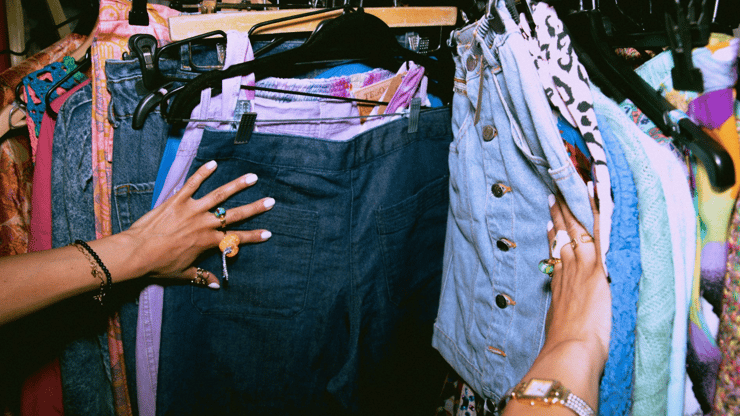Greenwashing In Fashion: Thrift Stores The Real Heroes

Ah, fashion—what a vibrant whirlwind of colours, textures and self-expression! But if you peek behind the curtain, you’ll find a less glamorous truth: the fashion industry is responsible for nearly 10 per cent of global carbon emissions, surpassing even international flights and maritime shipping combined.
In our world that’s becoming increasingly aware of climate issues, what better way to soothe the eco-conscious shopper than with a sprinkle of greenwashing? Greenwashing is that clever trick that lets brands flaunt their sustainability credentials by launching “conscious” collections while keeping their core practices unchanged.
Think about it: over 100 billion garments are churned out globally each year, and a staggering 87 per cent of them end up in landfills or are burned. Yet, a T-shirt made with just 5 per cent recycled cotton is celebrated as an ethical breakthrough.
It’s a classic case of ecological tokenism—wrapped up in a stylish package. In the midst of this eco-drama, thrift stores have quietly stepped up as the unsung heroes. No flashy marketing campaigns. No carbon-neutral slogans plastered on billboards.
Just clothes—already made, already worn and already part of the planet’s load, now given a fresh lease on life. According to ThredUp’s 2024 Resale Report, the secondhand market is set to hit $350 billion globally by 2027, with Gen Z leading the way. Let’s be honest: thrifting isn’t without its flaws.
The rise of “vintage” has led to skyrocketing prices and selective curation. But what it lacks in polish, it more than makes up for in principle. It doesn’t claim to be saving the world; it simply doesn’t add to its further decline. So, the next time you spot a fast-fashion brand declaring, “Green is the new black”, take a moment to ask: are they genuinely tailoring sustainability, or just accessorising with it?
Because in this stitched-together performance of conscious consumerism, perhaps the most ethical fashion statement is quietly hanging on a thrift store rack—no hashtags, no hype.









Leave a Comment